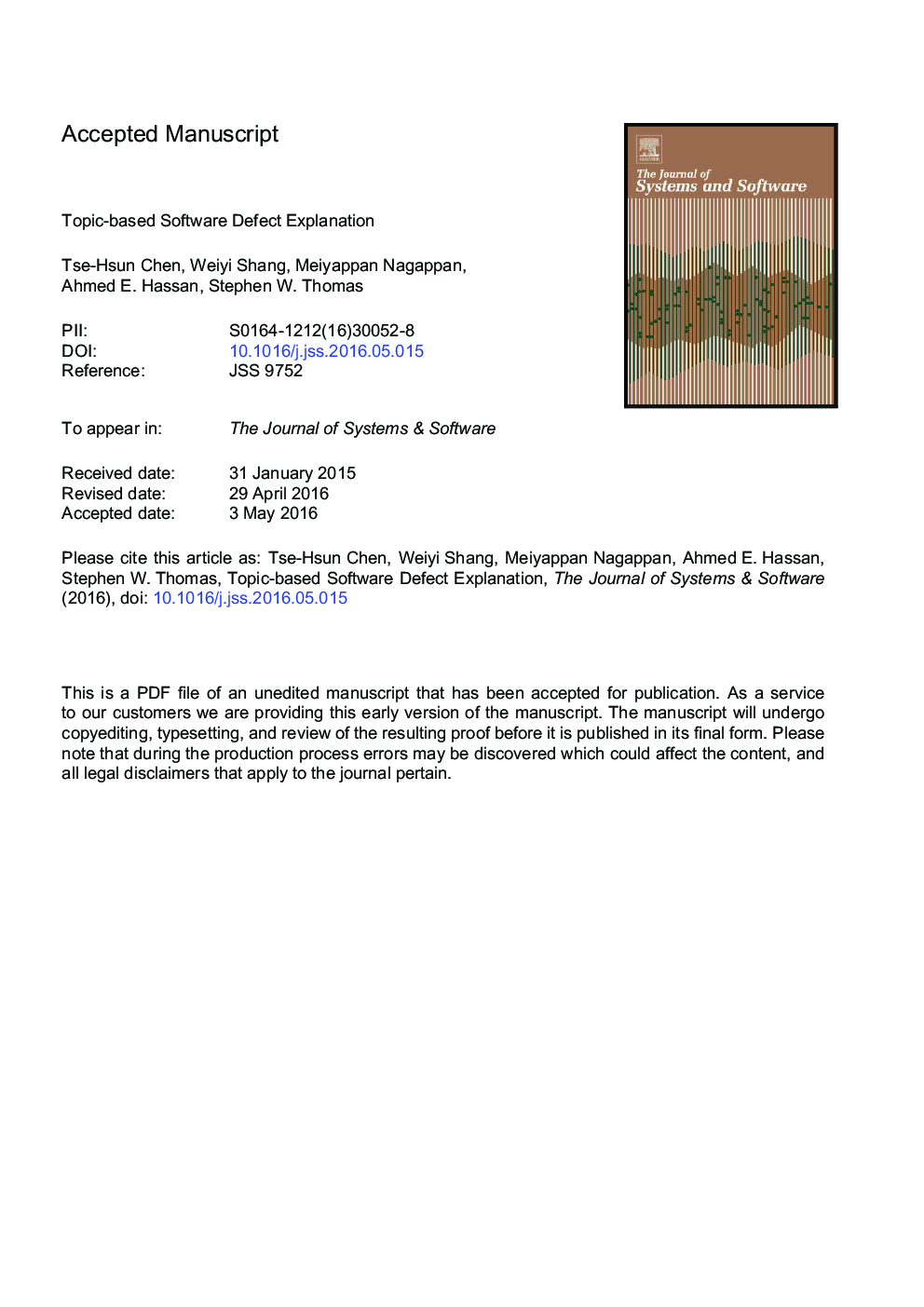| کد مقاله | کد نشریه | سال انتشار | مقاله انگلیسی | نسخه تمام متن |
|---|---|---|---|---|
| 4956440 | 1444518 | 2017 | 75 صفحه PDF | دانلود رایگان |
عنوان انگلیسی مقاله ISI
Topic-based software defect explanation
ترجمه فارسی عنوان
توضیحات نقص نرم افزار مبتنی بر موضوع
دانلود مقاله + سفارش ترجمه
دانلود مقاله ISI انگلیسی
رایگان برای ایرانیان
کلمات کلیدی
موضوعات مرتبط
مهندسی و علوم پایه
مهندسی کامپیوتر
شبکه های کامپیوتری و ارتباطات
چکیده انگلیسی
Researchers continue to propose metrics using measurable aspects of software systems to understand software quality. However, these metrics largely ignore the functionality, i.e., the conceptual concerns, of software systems. Such concerns are the technical concepts that reflect the system's business logic. For instance, while lines of code may be a good general measure for defects, a large file responsible for simple I/O tasks is likely to have fewer defects than a small file responsible for complicated compiler implementation details. In this paper, we study the effect of concerns on software quality. We use a statistical topic modeling approach to approximate software concerns as topics (related words in source code). We propose various metrics using these topics to help explain the file defect-proneness. Case studies on multiple versions of Firefox, Eclipse, Mylyn, and NetBeans show that (i) some topics are more defect-prone than others; (ii) defect-prone topics tend to remain so over time; (iii) our topic-based metrics provide additional explanatory power for software quality over existing structural and historical metrics; and (iv) our topic-based cohesion metric outperforms state-of-the-art topic-based cohesion and coupling metrics in terms of defect explanatory power, while being simpler to implement and more intuitive to interpret.
ناشر
Database: Elsevier - ScienceDirect (ساینس دایرکت)
Journal: Journal of Systems and Software - Volume 129, July 2017, Pages 79-106
Journal: Journal of Systems and Software - Volume 129, July 2017, Pages 79-106
نویسندگان
Tse-Hsun Chen, Weiyi Shang, Meiyappan Nagappan, Ahmed E. Hassan, Stephen W. Thomas,
